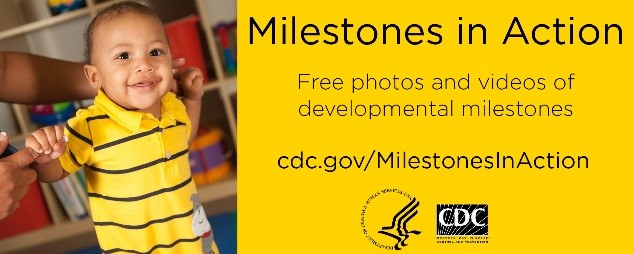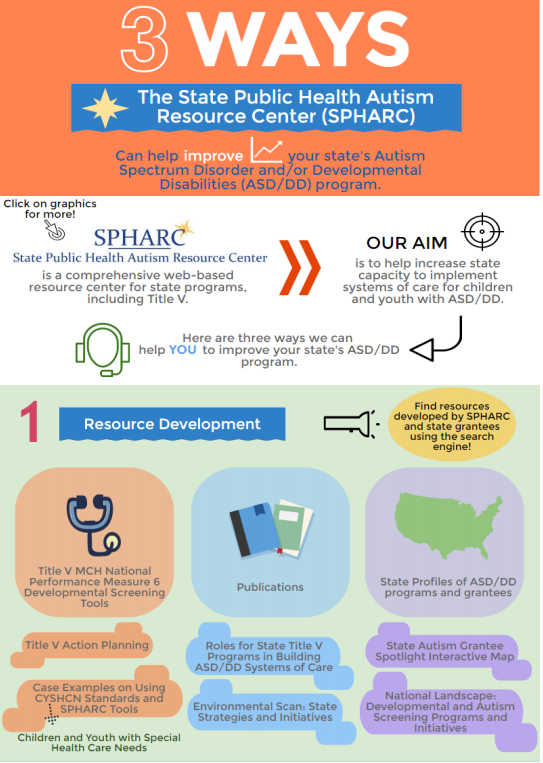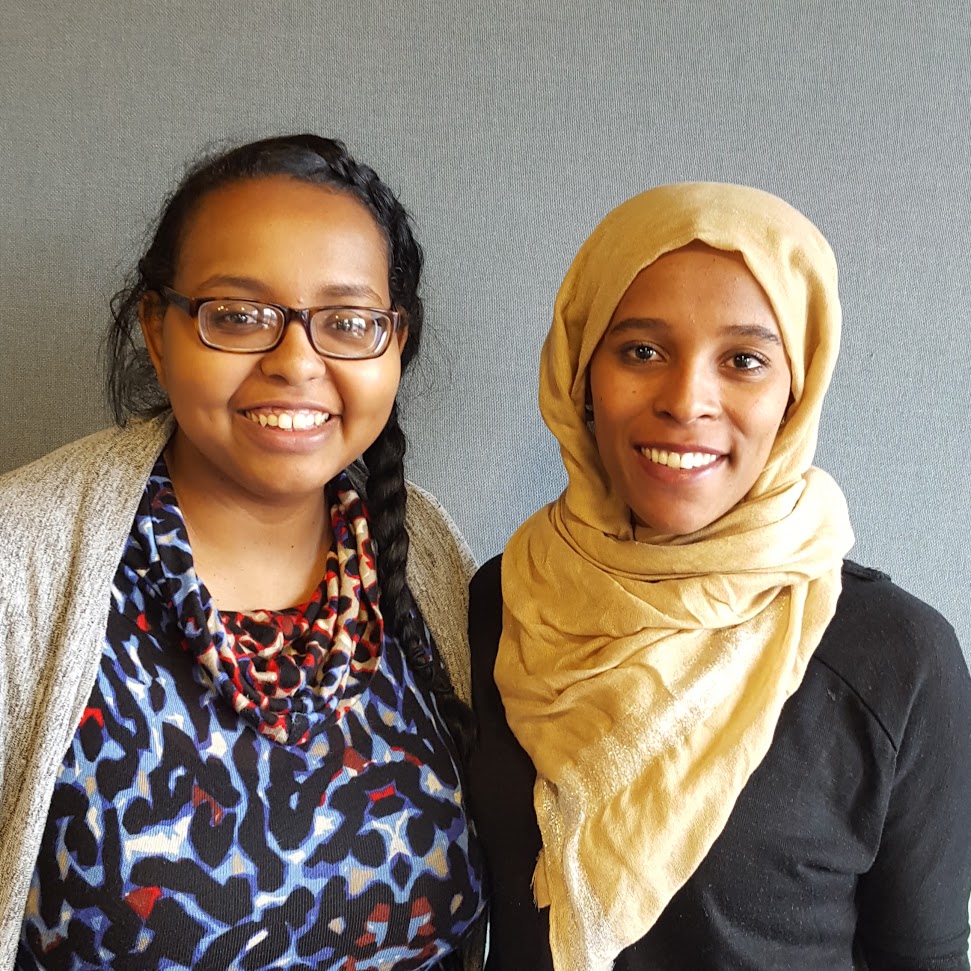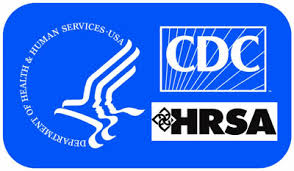|
Fall 2016 Issue
NEWS FROM ACT EARLY NETWORK PARTNERS |
New Resource from "Learn the Signs. Act Early." Milestones in Action Photo and Video Library 
Milestones in Action is a FREE image library that features photos and videos of children demonstrating developmental milestones from 2 months to 5 years of age. This tool was created to help parents, early care and education providers, and healthcare providers identify developmental milestones in children and know if there is cause for concern.
Benefits:
- Free!
- Shows parents what each milestone looks like
- Appeals to caregivers with limited literacy skills
- Great for showing complex milestones
- No permissions needed to use the photos and images in this library for educational or awareness-building purposes
WAYS TO USE:
Parents and Caregivers
Use this library as an aid in completing the milestones checklist for your child's age. To see these photos and videos with milestones checklists, go to www.cdc.gov/Milestones.
Professionals
- Embed and share photos and videos on your website and within presentations
- Share photos and videos to support information given during trainings
- Use Milestones in Action to support observations and conversations with parents on age-appropriate milestones
- Share photos and videos on social media to build community awareness of developmental milestones.
Please explore the Milestones in Action library at www.cdc.gov/MilestonesInAction.
. . . . . . . . . . . . . . . .
|
Resources for Zika and Developmental Monitoring Available in Public Health is for Everyone  There is an urgent need to educate public health practitioners on developmental monitoring, screening, and early identification of the health complications for infants and children affected by Zika. Babies affected by Zika may experience a spectrum of needs from the most severe cases of microcephaly, to vision problems, hearing loss, seizures, intellectual disabilities, reduced speech and language abilities, and other long-term developmental disabilities. Even though babies affected by Zika may look typical at birth, subtle changes that turn into serious health problems could occur as they become older. Ongoing developmental monitoring and screenings are necessary to be able to detect these changes. Sensitive language that supports these children and their families is essential. To address this urgent need, AUCD has added a Zika section to Public Health is for Everyone with resources on supporting families and infants affected by Zika, developmental monitoring, and how to speak sensitively with families about their concerns. There is an urgent need to educate public health practitioners on developmental monitoring, screening, and early identification of the health complications for infants and children affected by Zika. Babies affected by Zika may experience a spectrum of needs from the most severe cases of microcephaly, to vision problems, hearing loss, seizures, intellectual disabilities, reduced speech and language abilities, and other long-term developmental disabilities. Even though babies affected by Zika may look typical at birth, subtle changes that turn into serious health problems could occur as they become older. Ongoing developmental monitoring and screenings are necessary to be able to detect these changes. Sensitive language that supports these children and their families is essential. To address this urgent need, AUCD has added a Zika section to Public Health is for Everyone with resources on supporting families and infants affected by Zika, developmental monitoring, and how to speak sensitively with families about their concerns.
. . . . . . . . . . . . . . . .
|
State Public Health Autism Resource Center Infographic  The State Public Health Autism Resource Center (SPHARC) is a web-based resource center for state Autism and developmental disabilities programs, including Title V. Three key features of SPHARC include: resource development, technical assistance and peer-to-peer learning. See how SPHARC can support your state's ASD/DD program by clicking here. The State Public Health Autism Resource Center (SPHARC) is a web-based resource center for state Autism and developmental disabilities programs, including Title V. Three key features of SPHARC include: resource development, technical assistance and peer-to-peer learning. See how SPHARC can support your state's ASD/DD program by clicking here.
. . . . . . . . . . . . . . . .
|
"Learn the Signs. Act Early." Resources Now Available in Vietnamese  The "Learn the Signs. Act Early." Team is pleased to announce the completion of its project to translate and adapt the Milestone checklists, Milestones brochure, and tip sheets (How to Help Your Child & How to Talk to the Doctor) into Vietnamese. These materials were professionally translated and adapted in consultation with a small group of Vietnamese parents of young children and a group of Vietnamese subject matter experts. To access these files for local customization and/or printing, send your request to [email protected]. The "Learn the Signs. Act Early." Team is pleased to announce the completion of its project to translate and adapt the Milestone checklists, Milestones brochure, and tip sheets (How to Help Your Child & How to Talk to the Doctor) into Vietnamese. These materials were professionally translated and adapted in consultation with a small group of Vietnamese parents of young children and a group of Vietnamese subject matter experts. To access these files for local customization and/or printing, send your request to [email protected].
. . . . . . . . . . . . . . . .
|
NEWS FROM THE ACT EARLY NETWORK |
MN LEND Fellows Reach Out to State's East African Communities Through the Minnesota Act Early Network  Barite Gemada and Ashwak Hassan, 2015-16 Fellows in the Minnesota Leadership Education in Neurodevelopmental and Related Disabilities Program (MN LEND), helped to promote early screening and intervention services in their respective Oromo and Somali communities - two of the largest East African communities in the Twin Cities area. Gemada noted the absence of an Oromo Act Early delegate in MN Act Early and stepped into the role. She partnered with Hassan, who further aimed to destigmatize mental health conditions in the Somali community. Barite Gemada and Ashwak Hassan, 2015-16 Fellows in the Minnesota Leadership Education in Neurodevelopmental and Related Disabilities Program (MN LEND), helped to promote early screening and intervention services in their respective Oromo and Somali communities - two of the largest East African communities in the Twin Cities area. Gemada noted the absence of an Oromo Act Early delegate in MN Act Early and stepped into the role. She partnered with Hassan, who further aimed to destigmatize mental health conditions in the Somali community.
Together they each created Oromo and Somali videos for YouTube and social media to promote early screening and intervention services as part of their MN LEND projects.
The videos are available for viewing here:
http://lend.umn.edu/forums/earlyintervention.asp
MN Act Early also has free print materials in Somali, Hmong, and Spanish (click on the Translated Materials sub-header): https://ltsae.umn.edu/free-materials/.
. . . . . . . . . . . . . . . .
|
Croghan Foundation Early Childhood Webinar Series Autism Spectrum Disorders: From Identification to Evidence-Based Intervention  The North Carolina ASD State Implementation Team partnered with the Leo Croghan Foundation and the Area Health Education Centers (AHEC) in spring 2016 to provide professional development to clinicians, administrators, and parents focused on young children with ASD. For 25 years, the Croghan Foundation has provided exemplary educational outreach in NC devoted to early intervention issues for parents and professionals concerned with the care and development of young children. The North Carolina ASD State Implementation Team partnered with the Leo Croghan Foundation and the Area Health Education Centers (AHEC) in spring 2016 to provide professional development to clinicians, administrators, and parents focused on young children with ASD. For 25 years, the Croghan Foundation has provided exemplary educational outreach in NC devoted to early intervention issues for parents and professionals concerned with the care and development of young children.
This four-part webinar series entitled, "Autism Spectrum Disorders: Signs, Symptoms, and Early Identification," was conducted by members of the State Implementation Grant Team and included: Autism Spectrum Disorders - Signs and Symptoms; Screening Practices for Autism Spectrum Disorder; Diagnostic Assessment Strategies for Autism Spectrum Disorders; and Early Intervention for Autism Spectrum Disorders. Specific information was shared about prevalence and etiology, early signs and symptoms-featuring LTSAE materials and messages, "red flags," validated screening and diagnostic practices, and evidence-based interventions. The series was shared via the AHEC network in an effort to reach all regions of the state, and nearly 1300 participants joined in the series across the four webinars. The NC AHEC also offered continuing education credit for multiple disciplines. The series is currently archived and available for viewing at: https://www.wakeahec.org/ceonlinecourses.htm.
. . . . . . . . . . . . . . . .
|
Children with Autism may be Over-diagnosed with ADHD Study  Many children with autism spectrum disorder may have been mistakenly diagnosed with attention-deficit hyperactivity disorder, researchers suggest in a study. Scientists at the Children's Hospital of Philadelphia say a screening tool used to diagnose ADHD may be less accurate when a child has autism. The research team included one of the psychologists responsible for developing the mechanism, known as the ADHD Rating Scale Fourth Edition. Many children with autism spectrum disorder may have been mistakenly diagnosed with attention-deficit hyperactivity disorder, researchers suggest in a study. Scientists at the Children's Hospital of Philadelphia say a screening tool used to diagnose ADHD may be less accurate when a child has autism. The research team included one of the psychologists responsible for developing the mechanism, known as the ADHD Rating Scale Fourth Edition.
In the study, published in the Journal of Autism and Developmental Disorders, the authors conclude the screening method should be refined to provide a more accurate diagnosis. "One of our best current screening measures for ADHD may be over-diagnosing ADHD in children with autism," lead researcher Benjamin Yerys said in press release. "This is important because medications that work for ADHD may be less effective for a child on the autism spectrum."
The authors add that the overlap between the disorders often makes diagnosis a challenge, noting an estimated 30 percent or more children with autism also have ADHD.
For more information on this study, please click here.
. . . . . . . . . . . . . . . .
|
Number of US Foster Kids Rises: Parents' Drug Abuse a Factor  NEW YORK (AP) - After dropping sharply between 2005 and 2012, the number of children in the U.S. foster care system has increased for a third year in a row, according to new federal data released Thursday. A major factor: Worsening substance abuse by parents. The annual report from the Department of Health and Human Services tallied 427,910 children in the foster care system as of September 30, 2015, up from about 414,429 a year earlier. The peak was 524,000 children in foster care in 2002, and the number had dropped steadily to about 397,000 in 2012 before rising again. NEW YORK (AP) - After dropping sharply between 2005 and 2012, the number of children in the U.S. foster care system has increased for a third year in a row, according to new federal data released Thursday. A major factor: Worsening substance abuse by parents. The annual report from the Department of Health and Human Services tallied 427,910 children in the foster care system as of September 30, 2015, up from about 414,429 a year earlier. The peak was 524,000 children in foster care in 2002, and the number had dropped steadily to about 397,000 in 2012 before rising again.
According to the report, the foster care population rose in 2015 in nearly three quarters of the states, with the largest increases in Florida, Indiana, Georgia, Arizona and Minnesota. "The national number of children in foster care is still far below where it was 10 years ago, but any increase is cause for concern," said Mark Greenberg, HHS acting assistant secretary for children and families. Seeking to explain the increase, HHS said parental substance abuse was cited as factor in 32.2 percent of the 2015 cases in which a child was removed from home - up from 28.5 percent in 2012.To read the entire article, please click here.
. . . . . . . . . . . . . . . .
|
|
|
Support and Resources for Families of Newborns Affected by Zika  A baby affected by Zika virus may be born with significant health issues, like microcephaly. Others may not have apparent symptoms at birth, but may develop them over time. Because we are still learning about the long term effects of Zika infection during pregnancy, it is important that parents work with their doctors to manage the medical care of their baby. Click here for more information on Zika, family support, monitoring a child's development, and resources and services. "Build Your Own Zika Kit" flyers are available in multiple languages here. A baby affected by Zika virus may be born with significant health issues, like microcephaly. Others may not have apparent symptoms at birth, but may develop them over time. Because we are still learning about the long term effects of Zika infection during pregnancy, it is important that parents work with their doctors to manage the medical care of their baby. Click here for more information on Zika, family support, monitoring a child's development, and resources and services. "Build Your Own Zika Kit" flyers are available in multiple languages here.
. . . . . . . . . . . . . . . .
|
 The Health Resources and Services Administration (HRSA) works closely with the Centers for Disease Control and Prevention (CDC) and other Health and Human Services partners in response to Zika. For Zika Virus information and resources from HRSA, please click here. Please click here to review the Resource Guide for States and Communities Caring for Infants and Children Affected by Zika Virus. The Health Resources and Services Administration (HRSA) works closely with the Centers for Disease Control and Prevention (CDC) and other Health and Human Services partners in response to Zika. For Zika Virus information and resources from HRSA, please click here. Please click here to review the Resource Guide for States and Communities Caring for Infants and Children Affected by Zika Virus. |
|
|


